The Land Law (amended) has introduced many new policies in the use and management of agricultural land such as: Expanding the subjects eligible for transfer of agricultural land rights, agricultural land users are allowed to combine with trade, services, animal husbandry, medicinal plant cultivation...
Many experts assess that this is truly a "revolution" in agricultural land, a breakthrough, with many expected changes in the coming time.
Many new regulations on agricultural land
The revised Land Law completes the mechanism and policies on management and use of agricultural land in the direction of expanding the limit for receiving transfer of agricultural land use rights to no more than 15 times the local land allocation limit.
In addition, the subjects eligible for transfer of land use rights for rice cultivation are expanded to economic organizations and individuals who are not directly involved in agricultural production. This regulation, according to the representative of the Land Law Drafting Committee, aims to create conditions for organizations and individuals with capital and technical capacity to have access to land, invest in agricultural commodity production, and limit the situation of abandonment or ineffective use of fragmented agricultural land.
The Law also adds provisions that agricultural land users are allowed to convert crop and livestock structures, and are allowed to use a land area to build facilities directly serving agricultural production. In addition, agricultural land users are allowed to combine with trade, services, animal husbandry, medicinal plant cultivation, etc., but are not allowed to change the land type determined according to the provisions of the Land Law.
 |
According to Associate Professor, Dr. Nguyen Quang Tuyen, Hanoi Law University, the new regulations on agricultural land of the 2024 Land Law have institutionalized Resolution 18 of the 5th Conference of the Party Central Committee.
“From Resolution 18, looking at the new regulations on agricultural land of the 2024 Land Law, we see that the new regulations have removed legal bottlenecks and promoted land resources. Currently, we allow organizations and individuals who are not directly involved in agricultural production to receive transfers of agricultural land use rights. Along with that, we increase the limits and quotas for land allocation, receiving transfers of land use rights, then concentrating land and changing land use purposes,” said Associate Professor, Dr. Pham Quang Tuyen.
According to Associate Professor, Dr. Pham Quang Tuyen, the Land Law (amended) has created a "very wide space" in the transformation of crop and livestock structure and increased the attractiveness of the agricultural land sector. Accordingly, the Law has made very positive changes in protecting the rights and interests of the people. At the same time, it has removed legal bottlenecks to help the business community, domestic and foreign investors, and organizations and individuals not directly involved in agricultural production to participate in the agricultural land use rights market. This helps overcome the fragmentation of land through the legal basis of land concentration, creating conditions for the introduction of technology and improving labor productivity, reducing the cost of agricultural products, moving towards a green, clean agricultural production that can compete and conquer the markets of developed countries.
In addition, the amendment of the Land Law is also creating a model, a conversion or a combination to make tourism and agricultural real estate. This is a direction to improve the efficiency of agricultural land use.
Deputy Secretary General of the Vietnam Confederation of Commerce and Industry (VCCI) Dau Anh Tuan also said that there are many expectations for new, breakthrough policies related to agricultural land in the 2024 Land Law. When put into practice, the new regulations are expected to create momentum for economic development, maximize land resources, and build advanced agriculture.
“In my opinion, the 2024 Land Law has well protected the rights of farmers when their land is recovered and cleared. Along with that, the law will improve land use in a market-oriented, modern way. Some very important regulations are expanding the subjects of rice land transfer. Previously, only producers were allowed to transfer to each other, and only on a very small scale, but now all individuals and organizations with capacity are allowed to receive transfers. If people receive transfers in a more systematic, more effective, and higher quality way, the land will fully develop its potential, helping to develop agriculture,” Mr. Tuan commented.
Mr. Dau Anh Tuan hopes that this system will be able to help the agricultural sector produce goods for export and international integration. In addition, this system will also mobilize more resources for agricultural development.
Create a synchronous legal corridor, avoid policy "periphery"
With 260 articles, effective from January 1, 2025, the Land Law is a very large law, the provisions of the Land Law are too large, many major policies in the law are only stipulated in principles and guidelines and must be specified and guided in sub-law documents.
Deputy Chairwoman of the Law Committee Nguyen Thi Mai Phuong said that according to preliminary statistics, more than 65% of the content of sub-law documents is assigned to the Government and ministries for detailed regulations. The Government has assigned the drafting of 16 documents detailing the Land Law.
“Currently, the Government and ministries such as the Ministry of Natural Resources and Environment and the Ministry of Agriculture and Rural Development are actively implementing the law day and night, because if the regulations are not accompanied by specific procedures and provisions, the law cannot be implemented. Timely promulgation is important, but it is also important to be consistent and consistent with the policies and guidelines stipulated in the law,” emphasized Deputy Chairwoman of the Law Committee Nguyen Thi Mai Phuong.
From a management perspective, Mr. Le Van Binh, Deputy Director of the Department of Land, Ministry of Natural Resources and Environment, said that according to the Plan signed by Deputy Prime Minister Tran Hong Ha, there will be 9 decrees and 6 circulars to implement the Land Law. Regarding agricultural land, it is mainly in the Decree detailing a number of articles of the Land Law. Some of the issues that are facing difficulties and obstacles are determining individuals directly engaged in agricultural production; determining the planning of rice-growing land so that localities must allocate it according to national targets; providing guidance on cases of using multi-purpose agricultural land; providing guidance on cases where enterprises negotiate with people to receive the right to convert rice-growing land; and regulating administrative procedures to record these civil agreements...
Associate Professor, Dr. Nguyen Quang Tuyen, Hanoi Law University, commented that this is a huge challenge as land is related to 118 laws and directly related to more than 20 laws, requiring the synchronization of the Land Law compared to other legal documents. Therefore, sub-law documents must have specific, detailed, unified, synchronous, and practical regulations so that enforcement agencies can apply them. If there are conflicts or differences in procedures, it will cause delays in practice, creating unnecessary costs when implementing.
“In practice, it is necessary to have very specific, detailed regulations, step by step, so that the implementing agencies can rely on those regulations to implement. It is worth noting that when building regulations under the law, it is necessary to avoid loopholes, or so-called policy peripheries. Avoid taking advantage of loopholes to create group interests, profiteering, etc. That is, we must create a complete, synchronous, detailed, and specific legal corridor so that sectors and localities can implement it,” Associate Professor, Dr. Pham Quang Tuyen emphasized.
According to Tin Tuc Newspaper
Source




![[Photo] Science and Technology Trade Union honors exemplary workers and excellent union officials](https://vphoto.vietnam.vn/thumb/1200x675/vietnam/resource/IMAGE/2025/9/17/842ff35bce69449290ec23b75727934e)
![[Photo] General Secretary To Lam chairs a working session with the Standing Committee of the Government Party Committee](https://vphoto.vietnam.vn/thumb/1200x675/vietnam/resource/IMAGE/2025/9/17/cf3d855fdc974fa9a45e80d380b0eb7c)
















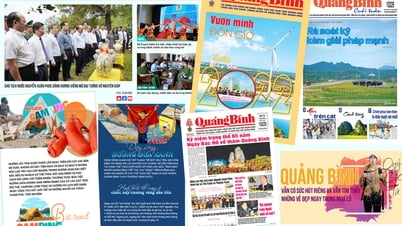











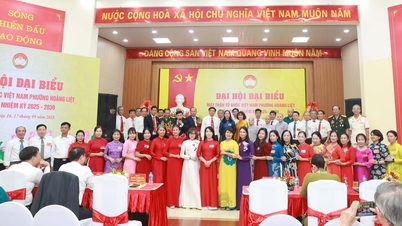








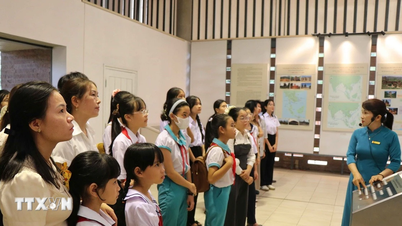










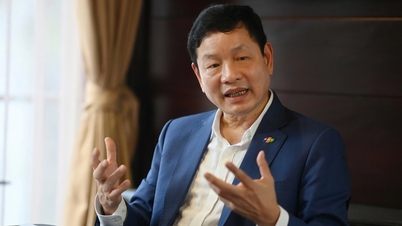





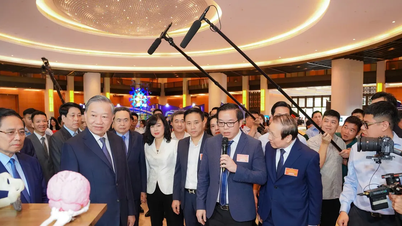











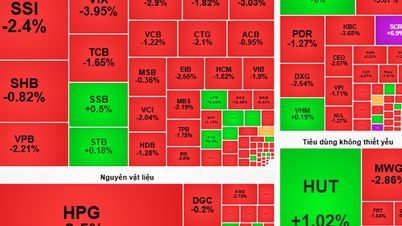

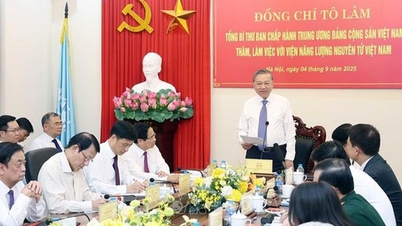





















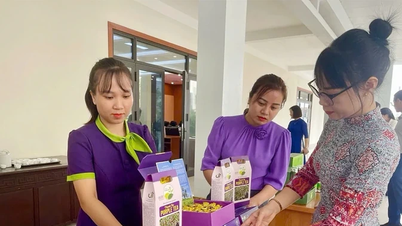












Comment (0)